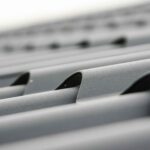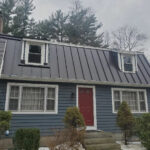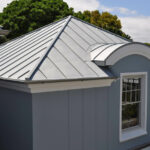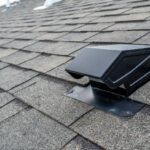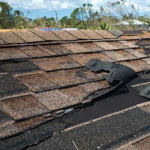Metal Roofing Leads to LEED Rating Energy Savings: Why Choose Aluminum
March 2, 2017 | By Mike Gonet | Filed under: Articles, Education, General, Green News, Metal Roofing
Summary: Aluminum metal roofing can boost a building’s LEED® rating significantly, raising the energy efficiency of a home and passing significant savings on to the client.
A recent study conducted by the U.S. Green Building Council suggested that Leadership in Energy and Environmental Design (LEED®) certified buildings averaged an ENERGY STAR® score of 89 out of a possible 100. In addition to being more environmentally friendly, LEED® for Homes™ certified buildings save clients money in the long run by boosting the energy efficiency of a home. One such element of a high-scoring building is metal roofing, a durable, customizable building material which has a huge impact on LEED energy savings.
The Benefits of Metal Roofing
It is no secret that architects love metal roofing. Striking to look at, easy to work with, and resistant to harsh weather conditions, roofs constructed from aluminum, zinc, and copper (or a combination thereof) are a popular choice. Resistant to fire and wind damage and practically maintenance-free, homeowners love them too. Recently, metal roofing has gained further praise for its sustainability; the materials are easily recyclable and can be built over the top of existing roofing to reduce waste and disposal costs. Best of all, these building materials are incredibly energy efficient, keeping homes cooler in summer and warmer in winter without excessive gas, oil, or electricity usage.
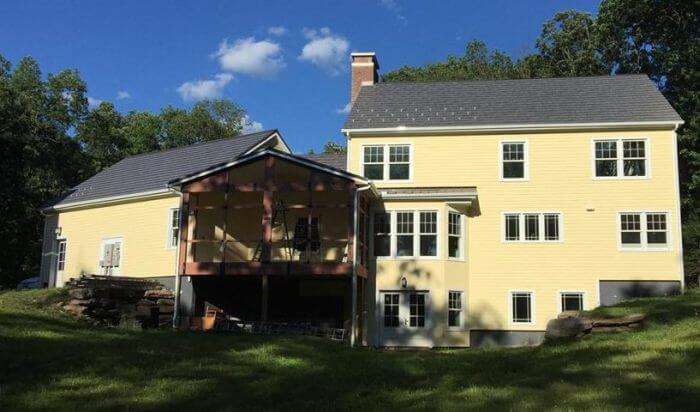
LEED Platinum Award Winning House features a Classic Metal Roofs installation
LEED Energy Savings
The LEED program ranks a building’s sustainability using a point system. A building may be awarded a certified silver, gold, or platinum LEED rating, with corresponding social and economic incentives. By reducing heat transfer and lowering energy expenditures, metal roofing can have an enormous impact on a building’s LEED rating. It has been proven that these types of materials save homeowners up to 70 percent in air conditioning and cooling use, which in turn may make a building eligible for LEED credits and even tax incentives.
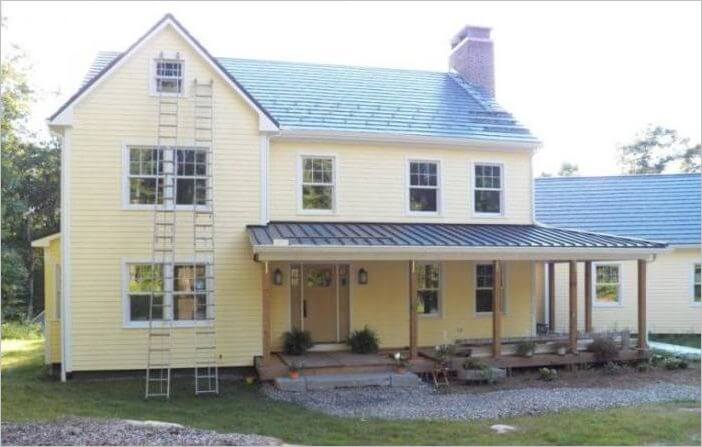
Award-winning net-zero energy home: Note the nice complementary use of standing seam over the porch with the Oxford slate main roof – energy savings and great looks!
Aluminum vs. Steel: Why Choose Aluminum?
There is a reason airplanes are made with aluminum and not steel. Aluminum skin over aluminum frames is how most aircraft are built. Its light weight and superior strength make it an ideal choice for both airplanes and roofs.
Cheaper than copper and zinc, and incredibly malleable, aluminum roofing is often preferred to steel on account of its superior resistance to corrosion. However, aluminum is also the smart choice for contractors concerned with sustainability and LEED rating. Thin and light, with an impressive strength-to-weight ratio, aluminum roofing stores the least amount of heat of any metal building material. This means that the roof cools quickly once the sunlight fades, leaving the attic space temperate and filtering far less heat to the rest of the home.
With all of this in mind, it is clear that aluminum should be the metal of choice for homeowners and architects looking to maximize energy savings and for a roof that will look great for years.
